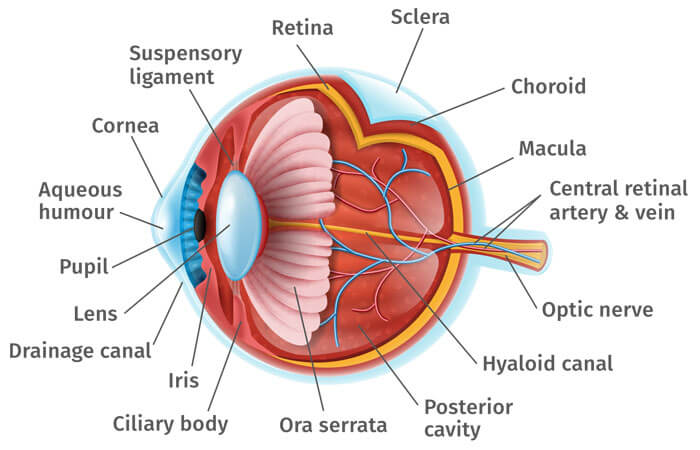Learn more about neuro-ophthalmology
What is neuro-ophthalmology? Treatment options and more!

At a Glance:
Things to know and remember:
- Neuro-ophthalmology is a sub-specialty of both neurology and ophthalmology. It covers a wide range of specific visual problems that are related to the nervous system – visual problems that do not originate with the eyes themselves.
- Neuro-ophthalmology concerns include: optic nerve problems (such as optic neuritis and ischemic optic neuropathy), visual field loss, unexplained visual loss, transient visual loss, visual disturbances, double vision, abnormal eye movements, thyroid eye disease, myasthenia gravis, unequal pupil size, and eyelid abnormalities.
About Neuro-Ophthalmology
What is neuro-ophthalmology?
Neuro-ophthalmology is a sub-specialty of both neurology and ophthalmology. It covers a wide range of specific visual problems that are related to the nervous system – visual problems that do not originate with the eyes themselves.
We use almost half of the brain for vision-related activities, including sight and moving the eyes. Neuro-ophthalmology, a subspecialty of both neurology and ophthalmology, requires specialized training and expertise in problems of the eye, brain, nerves and muscles.
Although some problems seen by neuro-ophthalmologist are not worrisome, other conditions can worsen and cause permanent visual loss, or even become life threatening. Sometimes the problem is confined to the optic nerve or the nervous system and other times it is related to a general medical condition. A neuro-ophthalmologist evaluates patients from the neurologic, ophthalmologic, and medical standpoints to diagnose and treat a wide variety of problems. Costly medical testing may be avoided.
Patients with poorly defined visual symptoms or conditions that remain unresolved despite previous ophthalmic and neurologic evaluations may benefit from neuro-ophthalmic evaluation.
Some of the common problems evaluated in neuro-ophthalmology include: optic nerve problems (such as optic neuritis and ischemic optic neuropathy), visual field loss, unexplained visual loss, transient visual loss, visual disturbances, double vision, abnormal eye movements, thyroid eye disease, myasthenia gravis, unequal pupil size, and eyelid abnormalities.
Attribution
Source: Eye Consultants of Pennsylvania and the National Eye Institute
Does my insurance plan
cover my eye care?
Find out what insurance we accept and what is covered by insurance.
Learn more about our neuro-ophthalmology specialists
Physician information including education, training, practice location and more.
Schedule an Appointment
Schedule an appointment with one of our specialists.





